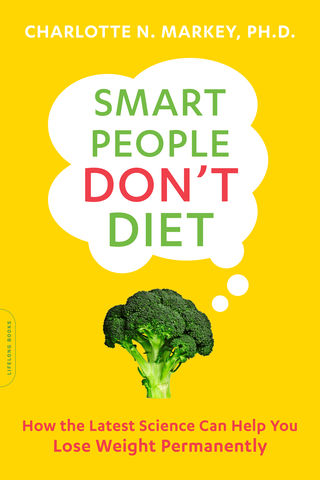This article first appeared on ScienceofRelationships.com.

I’ve always been an emotional eater. When I receive a promotion at work, I want to go out to dinner. When I’m stressed, I want a bag of gummy bears within reach. When I’m sad, my two best friends are Ben and Jerry.
So when my husband and I divorced last year—about as amicably as is possible—I was surprised to find that I was often unable to eat. I would pack healthy lunches of favorite foods but then find myself incapable of choking down more than a few bites at a time. Given that I’ve been studying eating behaviors for my entire adult life, I knew that not eating was not an option. So instead I’d “drink my calories” (the exact opposite of what I recommend people do when they are trying to lose weight), to be sure I was getting enough of something resembling nutrients. (Hey, if there is a lot of milk in the latte, that still counts—right?)
But I didn’t enjoy any of it.
It turns out that I’m not alone in this reaction to stress—or to divorce. According to some research, divorce is the second-most stressful life event one can experience (second only to the death of a spouse1). Both men and women tend to gain weight once they get married,2 but divorce typically results in weight loss.3 For some, the prospect of being “back on the market” may spur weight loss. But for many of us, it’s simply a reaction to extraordinary stress.
I’ve read others’ reports of the experience of divorce and how their daily habits changed—less eating, less sleeping, and more crying.4 One of the unfortunate things about weight loss following divorce is that women are almost universally praised for this “accomplishment”—even if it comes at a high emotional cost or if the shedding of pounds leaves them underweight.5 Losing weight should not always be greeted with congratulations; in fact, being underweight puts people at a higher risk of death than obesity does.6
Of course, some of us do respond to extreme stress by overeating. But there’s evidence that that doesn’t necessarily make people feel better, either. In fact, although we all like to think that comfort foods bring us, well, comfort, new research suggests that is rarely the case.7 In one study at the University of Minnesota, participants watched films that researchers chose because they were expected to make people feel sad. Then those same participants were randomly assigned to receive offers of different types of foods—their “comfort foods” (e.g., chocolate), liked foods, a neutral food (e.g., a granola bar), or no food at all. It turns out that participants’ moods improved no matter what group they were in, suggesting that the passage of time (rather than any particular type of food) was the best anecdote for sadness.
This study suggests that "The Divorce Diet"—or any change in eating habits following negative affect or stress—is not an adaptive or long-term solution for healthy weight management. In fact, writer Stephanie Dolgoff4 suggests that our cultural obsession with appearance and thinness keeps us from focusing on the more important, and often more difficult-to-discuss, issues in our lives. This is consistent with research suggesting that women often claim to want to lose weight to improve their health, while in reality, the perceived appearance benefits are the key motivation.8 These findings beg the question, “Why do we try to control what we eat when there is some other part of our life that feels out of control?”
Fortunately, as time has passed since my divorce, my appetite has returned. Food is once again a source of pleasure—and the desire to eat is a reminder that there is always a next meal, a next chapter of life.
Charlotte Markey, 2016
Smart People Don’t Diet (Da Capo Lifelong Books and Nero) by Dr. Charlotte Markey is available now. You can follow me on Twitter (@char_markey), Facebook (Dr. Charlotte Markey) and SmartenFit, Pinterest and on my website, Smart People Don’t Diet.

1Holmes T. H., & Rahe R. H. (1967). The Social Readjustment Rating Scale. Journal of Psychosomatic Research, 11, 213–221. (link to scale)
2Sarlio-Lähteenkorva, S., Lissau, I., & Lahelma, E. (2006). The social patterning of relative body weight and obesity in Denmark and Finland. The European Journal of Public Health, 16(1), 36-40.
3Sobal, J., Rauschenbach, B., & Frongillo, E. A. (2003). Marital status changes and body weight changes: AUS longitudinal analysis. Social Science and Medicine, 56(7), 1543-1555.
4Dolgoff, S. Please Don't Call This a Revenge Body.
5Markey, C. N. (2014). Smart People Don’t Diet: How the Latest Science Can Help You Lose Weight Permanently. Boston: Da Capo/ Lifelong Books.
6Cao, S., Moineddin, R., Urquia, M. L., Razak, F. H., & Ray, J. G., (2014). J-shapedness: an often missed, often miscalculated relation: the example of weight and mortality. Journal of Epidemiology and Community Health, 68(7), 683-90.
7Wagner, H. S., Ahlstrom, B., Redden, J. P., Vickers, Z., & Mann, T. (2014) The myth of comfort food. Health Psychology, 33, 1552–1557.
8Clarke, L. H. (2002) Older women's perceptions of ideal body weights: the tensions between health and appearance motivations for weight loss. Ageing and Society, 22, 751-773.




